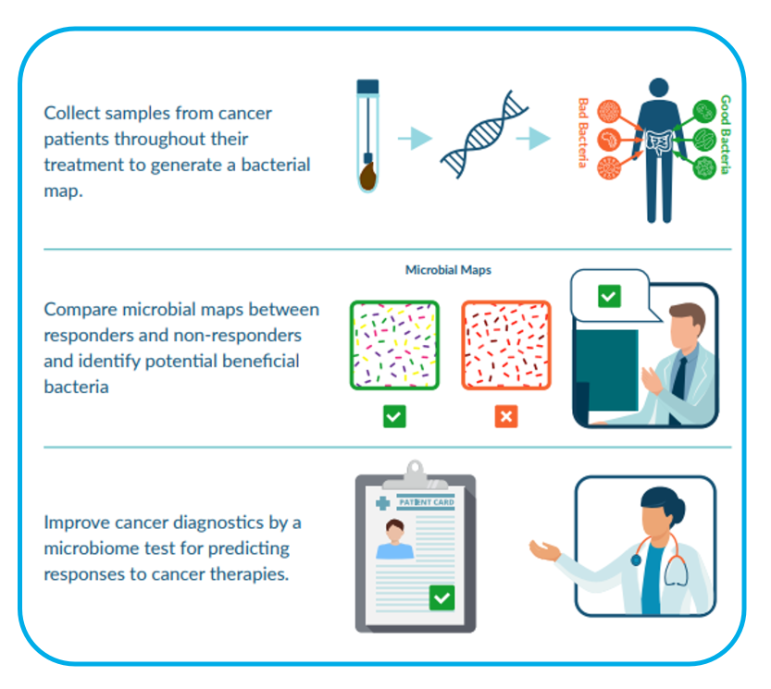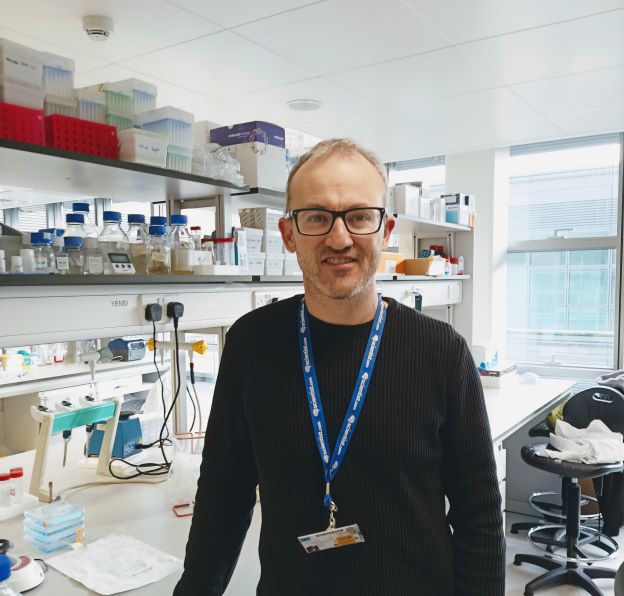

P1.1: Microbiome profiling for the stratification of cancer patients
Plain Language Summary
Tumour responses to treatments can vary widely. The microbiome is now being recognised a major modulator of disease and therapy response in cancer. Recent evidence shows that the microbiome, both within the gut and within tumours, can modulate responses to cancer therapy (chemotherapy, radiotherapy and immunotherapy) and susceptibility to toxic side effects. For instance, certain bacterial strains can inhibit the cell-killing action of some drugs, while improving the efficacy of other drugs. These findings suggest that using patients’ microbiome data to personalise cancer therapy has the potential to improve treatment efficacy while preventing toxicity.
The aim of this project is to investigate the influence of the microbiome on responses to cancer therapy, and to exploit this knowledge in developing better treatments. This research is currently being carried out both in laboratory models and using clinical samples from patients. The team are also developing a point-of-care device to rapidly analyse the bacterial profile of cancer patients, with the goal of better predicting their response to therapy.
The impact of this research will be the development of personalised treatment strategies for cancer patients, based on their microbiome profile. This project will also provide a fundamental insight into microbiome dynamics during cancer progression and therapy, and open new avenues for developing diagnostic and therapeutic interventions.

Project team



